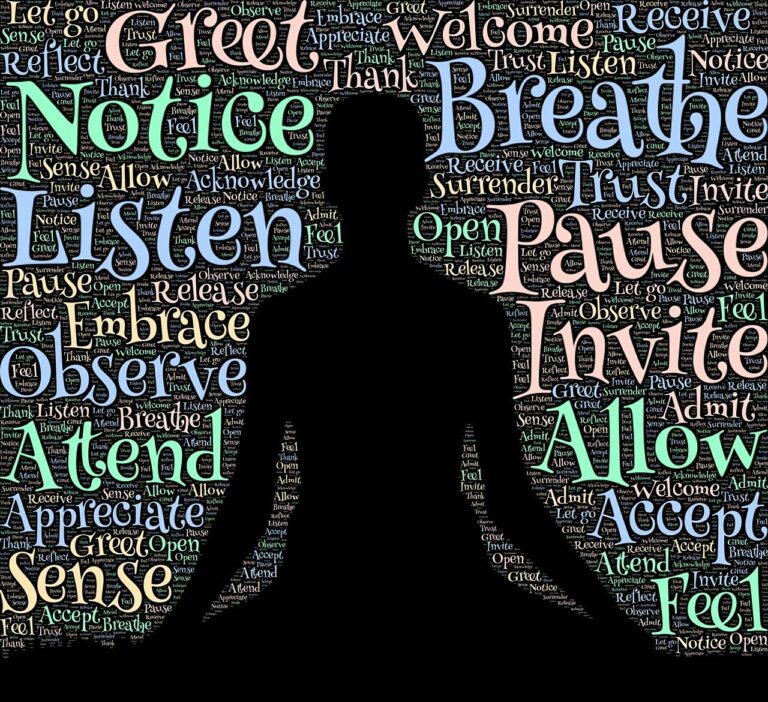Unraveling the Mystery: Why Do I Feel Sleepy After Meditation
Why Do I Feel Sleepy After Meditation? It may seem counterintuitive – meditation is often associated with increased alertness and focus. However, this intriguing phenomenon can be explained by the science behind meditation and its effect on the brain.
During meditation, the brain enters a state of deep relaxation and quiet alertness. This allows the mind to detach from external distractions and promotes a sense of calm and tranquility. However, this deep relaxation can also induce feelings of drowsiness.
One reason for feeling sleepy after meditation is that the brain produces more alpha waves during this practice. These brain waves are associated with relaxation and drowsiness, making it natural to feel tired afterward.
Additionally, meditation can also release tension and stress from the body, leading to a state of physical relaxation. This combination of mental and physical relaxation can contribute to feeling sleepy or falling asleep after meditation.
So, the next time you feel drowsy after a peaceful meditation session, rest assured that it’s a natural and normal part of the process. Embrace the tranquility and use it as an opportunity to rejuvenate your mind and body.
The science of meditation and its effects on the brain
For centuries, meditation has been a revered practice celebrated for its manifold advantages for mental and physical health. But what happens in the brain during meditation that can lead to feeling sleepy afterward?
Research has shown that meditation can profoundly impact brain function and structure. Regular meditation practice has been found to increase the prefrontal cortex’s thickness, the brain area responsible for attention and self-awareness. This heightened activity in the prefrontal cortex can enhance cognitive function and improve focus.
Furthermore, meditation can also activate the brain’s default mode network (DMN). The DMN is a network of active brain regions when the mind is at rest and not focused on external tasks. This activation of the DMN during meditation allows for self-reflection and introspection.
During meditation, the brain’s activity shifts from the default mode network to the task-positive network (TPN), which is responsible for focused attention. This shift in brain activity can lead to increased alertness and heightened sensory perception.
However, the shift in brain activity during meditation also induces deep relaxation. This relaxation can trigger the production of alpha waves in the brain, which are associated with feelings of relaxation and drowsiness. Therefore, it is not uncommon to feel sleepy after engaging in a meditation practice.
Understanding the intricate workings of the brain during meditation can help us appreciate the science behind feeling sleepy afterward. It is a testament to the brain’s ability to adapt and respond to different states of consciousness.
The Parasympathetic Nervous System’s Involvement in Inducing Relaxation
The parasympathetic nervous system plays a crucial role in promoting peace and restfulness. It counterbalances the sympathetic nervous system, responsible for the body’s fight-or-flight response.
The parasympathetic nervous system is activated during meditation, decreasing heart rate, blood pressure, and muscular tension. This activation allows the body to enter a state of deep relaxation, facilitating the release of stress and anxiety.
The parasympathetic nervous system is also responsible for regulating digestion, promoting a sense of calm, and conserving energy. When activated during meditation, it signals to the body that it is safe to relax and unwind.
The activation of the parasympathetic nervous system during meditation can induce feelings of drowsiness. The body interprets the relaxation response as a signal to wind down and prepare for rest. As a result, it is not uncommon to feel sleepy after engaging in a meditation practice.
Understanding the role of the parasympathetic nervous system in relaxation can help us appreciate the physiological processes that contribute to feeling sleepy after meditation. It highlights the interconnectedness of the mind and body and the powerful influence of meditation on our overall well-being.
Understanding the sleep-wake cycle and circadian rhythm
The sleep-wake process and circadian rhythm are essential when examining feeling sleepy after meditation. The sleep-wake cycle is the natural 24-hour cycle of sleep and wakefulness that our bodies go through, while the circadian rhythm refers to the internal clock that regulates our sleep patterns.
During the sleep-wake cycle, our bodies follow a pattern of alternating between sleepiness and wakefulness. Various factors, including exposure to light, physical activity, and our daily routines, influence this cycle.
Meditation can disrupt the sleep-wake cycle by inducing relaxation and calmness. When practiced close to bedtime, meditation can trigger the body’s natural sleep response, making it easier to fall asleep.
Furthermore, the circadian rhythm also affects feeling sleepy after meditation. External cues, such as light exposure and daily routines, influence our circadian rhythm. Engaging in contemplation, especially during the evening or nighttime, can signal to our body that it is time to wind down and prepare for rest.
It is essential to be mindful of the timing of meditation practice to avoid interfering with the natural sleep-wake cycle. Engaging in meditation earlier in the day or incorporating it into a morning routine can help prevent excessive drowsiness and promote a healthy sleep schedule.
By understanding the sleep-wake cycle and circadian rhythm, we can better manage the effects of meditation on our sleep patterns and optimize our overall well-being.
The impact of meditation on neurotransmitters and hormones
Meditation has been found to influence neurotransmitters and hormones in the brain, which can contribute to feeling sleepy after practice. Neurotransmitters are chemical messengers that facilitate communication between brain cells, while hormones are the body’s chemical messengers that regulate various bodily functions.
Serotonin
One neurotransmitter that is affected by meditation is serotonin. Serotonin is often referred to as the “feel-good” neurotransmitter and is involved in regulating mood, sleep, and appetite. Meditation has been found to increase serotonin levels, promoting a sense of calm and relaxation.
Gamma-aminobutyric acid (GABA)
Another neurotransmitter influenced by meditation is gamma-aminobutyric acid (GABA). GABA is an inhibitory neurotransmitter that helps regulate brain activity and reduce anxiety. Meditation has been shown to increase GABA levels, contributing to feelings of relaxation and drowsiness.
Hormone Levels
Meditation can also impact hormone levels. For example, cortisol, commonly known as the stress hormone, is often elevated in individuals experiencing chronic stress. Meditation has been found to reduce cortisol levels, promoting relaxation and reducing feelings of alertness.
The Neurochemical Effects of Meditation
The influence of meditation on neurotransmitters and hormones can contribute to feeling sleepy after the practice. The increase in serotonin and GABA levels, combined with the decrease in cortisol, creates an environment conducive to relaxation and drowsiness.
The impact of meditation on neurotransmitters and hormones can deepen our appreciation for the physiological mechanisms behind feeling sleepy after meditation. It reinforces the holistic nature of meditation and its ability to influence the mind and body positively.
The connection between deep relaxation and drowsiness
Deep relaxation is a fundamental component of meditation, allowing the mind and body to enter a state of calm and tranquility. This deep relaxation can contribute to feeling sleepy or even falling asleep after engaging in a meditation practice.
When we experience deep relaxation during meditation, the body’s energy is redirected from external activities to internal restoration and healing. This power shift can induce drowsiness as the body enters a vital state.
Deep relaxation during meditation can activate the body’s relaxation response, characterized by a decrease in heart rate, blood pressure, and muscle tension. These physiological changes are conducive to falling asleep, as the body interprets the relaxation response as a signal to prepare for rest.
It is important to note that feeling sleepy after meditation does not necessarily indicate a lack of focus or commitment to the practice. On the contrary, it is often a sign that the body and mind are responding to the relaxation and tranquility induced by meditation.
By embracing the connection between deep relaxation and drowsiness, we can view feeling sleepy after meditation as a natural and beneficial part of the process. It provides an opportunity to recharge and rejuvenate, promoting overall well-being and mental clarity.

Factors that contribute to feeling sleepy after meditation
Several factors can contribute to feeling sleepy after meditation. These factors can vary from individual to individual. They can be influenced by various elements, such as the type and duration of meditation practice, the environment, and the individual’s overall sleep quality.
One factor contributing to feeling sleepy after meditation is the type of meditation practiced. Different meditation techniques have varying effects on the mind and body. For example, mindfulness meditation encourages focused attention on the present moment, while loving-kindness meditation cultivates feelings of compassion and connection. The specific effects of each technique can influence the level of relaxation and drowsiness experienced afterward.
Another factor to consider is the duration of the meditation practice. Longer meditation sessions tend to induce more profound relaxation and can increase the likelihood of feeling sleepy afterward. Conversely, shorter meditation sessions promote a sense of calm and peace without causing excessive drowsiness.
The environment in which meditation takes place can also impact feelings of sleepiness afterward. A comfortable and quiet environment can enhance relaxation and promote a restful state. On the other hand, a noisy or distracting environment may hinder relaxation and increase feelings of alertness.
Individual sleep quality and overall fatigue levels can also influence the likelihood of feeling sleepy after meditation. If an individual is already sleep-deprived or experiencing high levels of fatigue, they may be more prone to feeling drowsy after engaging in a meditation practice.
Individuals can tailor their meditation practice to their specific needs and preferences by considering these factors. Finding a balance that promotes relaxation and rejuvenation without interfering with daily activities or sleep patterns is essential.
Tips for managing sleepiness during and after meditation
Feeling sleepy after meditation can be a normal and natural response, but it can also be disruptive if it interferes with daily activities or sleep patterns. Here are some tips for managing sleepiness during and after meditation:
- Timing: Consider the timing of your meditation practice. Engaging in meditation earlier in the day or during a time when you are naturally more alert can help prevent excessive drowsiness. Avoid meditating too close to bedtime if it tends to disrupt your sleep.
- Posture: Adopting an upright posture during meditation can help maintain alertness and reduce the likelihood of falling asleep. Sit on a cushion or chair, ensuring your spine is upright and your shoulders remain at ease. Avoid lying down, as this can promote sleepiness.
- Movement: Incorporate gentle movement or stretches before or after meditation to invigorate the body and increase alertness. This can help counteract any drowsiness that may arise from deep relaxation.
- Environment: Create a comfortable and conducive environment for meditation. Choose a quiet space free from distractions and ensure the temperature is comfortable. Adjusting the lighting to your preference can also promote wakefulness during and after reflection.
- Hydration: Drink a glass of water before and after meditation to stay hydrated. Dehydration can contribute to feelings of fatigue, so maintaining adequate hydration levels can help combat sleepiness.
- Breaks: If you feel excessively sleepy during meditation, take short breaks to stretch, move around, or splash cold water on your face. These brief intermissions can help re-energize the body and mind.
- Mindfulness techniques: Incorporate mindfulness into your meditation practice to increase alertness and focus. For example, you can bring attention to your breath or engage in body scan exercises to stay present and reduce drowsiness.
By implementing these tips, you can manage sleepiness during and after meditation, allowing for a more balanced and fulfilling practice.

Common misconceptions about feeling sleepy after meditation
Feeling sleepy after meditation can sometimes be misunderstood or seen as a sign of disengagement or lack of focus. However, it is essential to address common misconceptions to appreciate the science behind this phenomenon entirely.
One common misconception is that feeling sleepy after meditation means the practice was ineffective or unproductive. On the contrary, feeling sleepy can indicate that the body and mind have responded positively to meditation’s relaxation and calming effects. It signifies that the practice is restoring balance and promoting overall well-being.
Another misconception is that feeling sleepy after meditation shows laziness or lack of discipline. This is far from the truth. Meditation requires discipline and commitment, and feeling sleepy afterward does not diminish the effort or dedication put into the practice.
It is crucial to reframe our perception of feeling sleepy after meditation and view it as a natural and beneficial part of the process. By doing so, we can embrace tranquility and use it as an opportunity to rejuvenate our mind and body.
Final Thoughts: Why Do I Feel Sleepy After Meditation
Feeling sleepy after meditation is a fascinating phenomenon that can be explained by the science behind meditation and its effects on the brain. The deep relaxation and quiet alertness induced during meditation can lead to the production of alpha waves and trigger the body’s relaxation response, resulting in feelings of drowsiness.
We can optimize our meditation practice and promote overall well-being by managing sleepiness during and after meditation through timing, posture, movement, and mindfulness techniques. Reframing any misconceptions and viewing feeling sleepy as a sign of progress and deep relaxation rather than a lack of focus or discipline is essential.
So, the next time you find yourself drifting into a peaceful slumber after a meditation session, rest assured that it is a natural and beneficial response. Embrace the tranquility, rejuvenate, and awaken with a refreshed mind and body.







